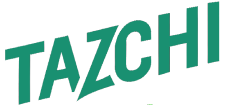In a recent series of events that shook the social media landscape, the Victoria Matosa Leak emerged as a trending topic, spreading like wildfire across various platforms. The leak, consisting of private photos, messages, and videos of the popular influencer Victoria Matosa, raised significant concerns regarding privacy, cybersecurity, and online safety. This article will delve into the details of the Victoria Matosa Leak, exploring what happened, the implications of such incidents, and measures that can be taken to mitigate the risks.
The Victoria Matosa Leak: An Overview
The Victoria Matosa Leak involved the unauthorized disclosure of sensitive and private information belonging to Victoria Matosa, a well-known social media personality with a substantial following. The leaked content, which included intimate photos, personal messages, and confidential videos, quickly spread across various online platforms, garnering widespread attention and raising ethical, legal, and cybersecurity questions.
How Did the Leak Occur?
The exact details regarding the origin and methods of the leak are still unclear, with speculation pointing towards potential hacking, data breaches, or even insider threats. It is essential to note that the unauthorized disclosure of personal data without consent is not only a violation of privacy but also raises serious legal implications.
Risk of Cyberbullying and Online Harassment
Following the leak, Victoria Matosa became vulnerable to cyberbullying, online harassment, and malicious attacks. The dissemination of private content without consent not only infringes upon her rights but also exposes her to significant emotional distress and reputational damage.
Legal Ramifications and Privacy Laws
The Victoria Matosa Leak underscores the importance of robust data protection laws and regulations to safeguard individuals against privacy violations and data breaches. Legal actions, including filing complaints, pursuing criminal charges, and seeking damages, may be pursued in response to such incidents.
Mitigating the Risks of Data Leaks and Privacy Breaches
In light of the Victoria Matosa Leak and similar incidents affecting individuals worldwide, it is crucial to implement proactive measures to mitigate the risks of data leaks and privacy breaches. Below are some essential steps that can be taken to enhance online security and protect personal information:
1. Strengthening Cybersecurity Measures
Invest in robust cybersecurity solutions, such as firewalls, antivirus software, and secure VPNs, to safeguard sensitive data from unauthorized access and cyber threats.
2. Data Encryption and Secure Communication
Utilize encryption techniques to protect data in transit and ensure secure communication channels to prevent eavesdropping and interception of sensitive information.
3. Regular Security Audits and Updates
Conduct routine security audits, update software and applications regularly, and patch vulnerabilities to fortify your digital defenses against cyber attacks and data breaches.
4. Privacy Settings and Permissions
Review and adjust privacy settings on social media platforms, restrict access to personal information, and carefully manage app permissions to control data sharing.
5. Employee Training and Awareness
Educate employees and individuals on cybersecurity best practices, raise awareness about phishing scams and social engineering tactics, and promote a cybersecurity-conscious culture within organizations and communities.
Frequently Asked Questions (FAQs)
1. What should I do if my data is leaked online?
If your data is leaked online, immediately report the incident to the relevant platform or authorities, change your passwords, and consider seeking legal advice to protect your rights and privacy.
2. How can I prevent data leaks on social media?
To prevent data leaks on social media, limit the amount of personal information shared online, enable privacy settings, avoid clicking on suspicious links or messages, and be cautious about the information you disclose online.
3. Are data leaks illegal?
Data leaks that involve the unauthorized disclosure of personal information are often illegal and may constitute violations of privacy laws, cybersecurity regulations, and data protection statutes, leading to potential legal consequences for the parties involved.
4. What are the consequences of data leaks for individuals and organizations?
Data leaks can have severe consequences for individuals and organizations, including financial losses, reputational damage, legal liabilities, identity theft, cyberbullying, and emotional distress, highlighting the critical importance of safeguarding personal and sensitive information.
5. How can I assess the security of my online accounts and data?
To assess the security of your online accounts and data, use strong, unique passwords for each account, enable two-factor authentication, regularly monitor your accounts for suspicious activities, and consider using reputable cybersecurity tools to enhance your digital defenses.
In conclusion, the Victoria Matosa Leak serves as a stark reminder of the risks associated with online privacy, cybersecurity, and data protection in the digital age. By taking proactive steps to strengthen security measures, raise awareness about online risks, and advocate for stronger privacy regulations, individuals and organizations can better safeguard their data and mitigate the potential impact of data breaches and privacy violations.
